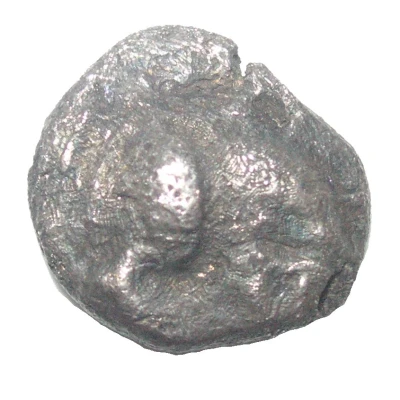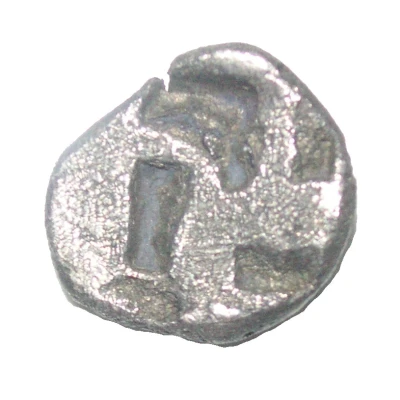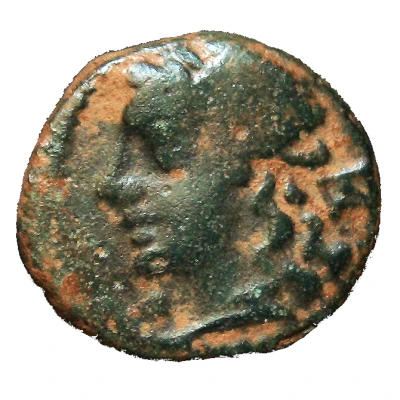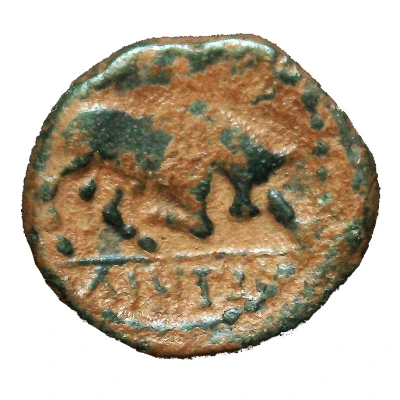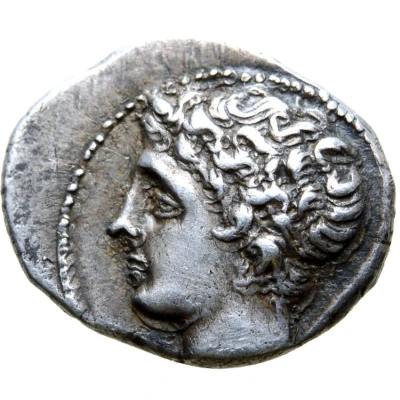
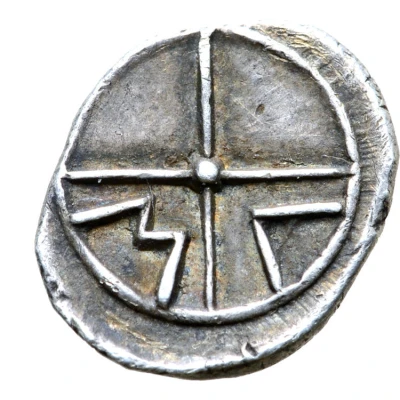

© Éditions V. Gadoury
Hemiobol 300 BC - 50 BC
| Silver | 0.46 g | 9.5 mm |
| Issuer | Massalia (Gaul) |
|---|---|
| Type | Standard circulation coin |
| Years | 300 BC - 50 BC |
| Value | Hemiobol (1⁄12) |
| Currency | Phocaean Drachm |
| Composition | Silver |
| Weight | 0.46 g |
| Diameter | 9.5 mm |
| Shape | Round (irregular) |
| Technique | Hammered |
| Orientation | Variable alignment ↺ |
| Demonetized | Yes |
| Updated | 2024-10-09 |
| Numista | N#62288 |
|---|---|
| Rarity index | 72% |
Reverse
Wheel of four spokes
Script: Greek
Lettering: M A
Translation: Massalia
Comment
Depeyrot 58; SNG Leipzig 10-1
Interesting fact
The Hemiobol coin was used in ancient Gaul (now France) and was equivalent to half of a standard unit of currency, called a "drachm". It was made of silver and weighed 0.46 grams. Despite its small size, the Hemiobol was an important coin in the ancient Greek city of Massalia (modern-day Marseille), where it was minted and widely used in trade.
Price
| Date | Mintage | VG | F | VF | XF | AU | UNC |
|---|---|---|---|---|---|---|---|
| ND (300 BC - 50 BC) | - | - | - | - | - | - |
Values in the table are based on evaluations by sales realized on Internet platforms. They serve as an indication only for Hemiobol (300 BC - 50 BC) coin.
